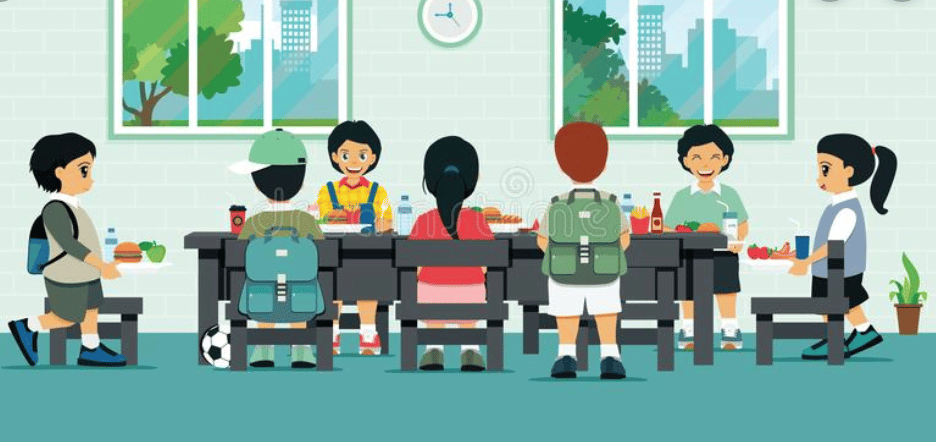Lunchroom Behavior – How Students Can Be Merry And Behave

Many students use lunchtime to let go of responsibilities and to socialize intensively. It’s important for administrators and staff to acknowledge that students need a break from their routine, but it’s important that they learn to relax in ways that respect others.
Lunchroom behavior is a good indicator of the school personnel’s style of leadership. Misbehavior in the lunchroom could mean that the leadership style is too controlling or too permissive. An authoritarian leadership style invites rebellion and resistance while failing to develop self-discipline, responsibility, cooperation, or social interest. A permissive style invites chaos and fails to develop these same qualities. Respectful lunchroom behavior suggests that the leadership style of the school personnel is authoritative. An authoritative (democratic) leadership style fosters all the qualities and skills that authoritarian and permissive styles disregard.
Lunchroom Behavior Suggestions
- Anytime you see a problem behavior, simply ask the students involved what they are supposed to be doing according to the rules they helped create. Often this is enough to motivate students to change their behavior.
- Describe the behavior you see: “I notice that you’re throwing food” or “I notice that you’re yelling” or “I notice that you didn’t pick up your trash.” Then ask, “What do you need to pick up your trash. Then ask, “What do you need to correct this problem?” This friendly reminder is more effective than punishment and inspires future cooperation instead of rebellion.
- When the lunchroom is very noisy, adults typically believe that they must speak in a voice that competes with that level of noise. Rather than yelling, lean close to the misbehaving student or group of students, and speak softly.
- Put a group of students in the same boat. When one student at a table is throwing food, involve all the students at that table in the cleanup: “As soon as this table is cleaned up, you may leave.”
- Let the student table monitor handle the misbehavior. (Student table monitors should be trained in methods of gaining cooperation respectfully, such as those contained in the suggestions here. Otherwise, they may invite resistance and rebellion by trying to dictate behavior).
- Hand a copy of the list of appropriate lunchroom behaviors to the group at a table, and quietly ask the students to locate the misbehavior that they need to work on. Thank them for their cooperation.
- When you have tried all the suggestions listed so far and a student or class persists with behavior that is disrespectful, firmly and kindly implement the respectful consequences that have been established.

Planning Ahead To Prevent Future Problems
- A specific school policy regarding lunchroom behavior should be established. This process is most effective when all people involved have a voice, such as lunchroom personnel, custodial staff, students, administration, and faculty. The policy should include clear descriptions of respectful Behaviors and consequences. Possible consequences might include the temporary loss of the privilege of eating in the lunchroom or time spent after lunch to help the custodial staff.
- During a class meeting, ask each class to brainstorm about typical lunchroom problems and then to create rules that will prevent or solve these problems. (The most powerful method of solving problems at school is always to invite students to do it. They will feel respected and be motivated to follow rules they have helped create.) Students may enjoy role-playing both disrespectful and respectful lunchroom behavior. Contrasts are powerful teaching tools.
- Invite lunchroom personnel to attend class meetings, where they can share their concerns and ask for help and solutions. Many students are unaware of how their behavior causes problems for others.
- To involve students in maintaining acceptable lunchroom behavior, introduce a system of rotating student monitors. The monitors should respectfully motivate their fellow students to behave appropriately and to clean up after themselves.
- Have students from the upper with younger classes to help monitor proper lunchroom behavior.
- Acknowledge and validate your students need to take a break from the classroom routine. Share your own relaxing lunch break. Balance this discussion of behavior that respects others well as school property.
- Don’t expect perfection, but keep working for improvement. Whenever guideline doesn’t work or works for only a short time, put it back on the class meeting agenda so the kids can discuss it and renew their commitment to it or work on another solution
